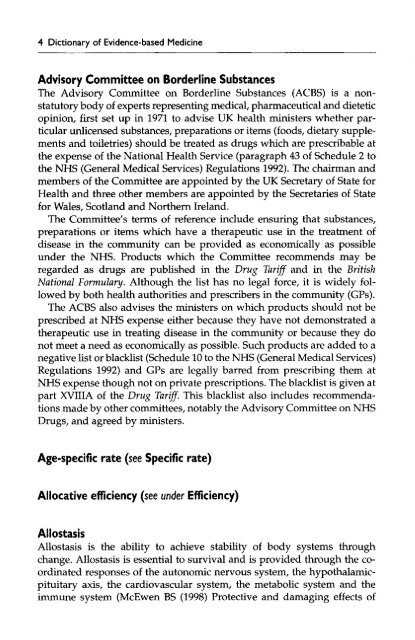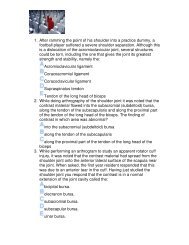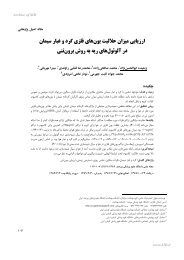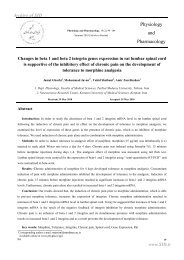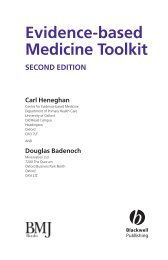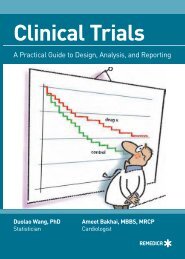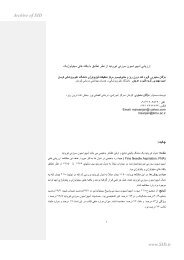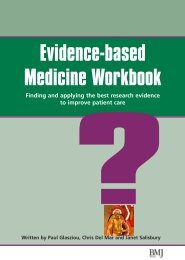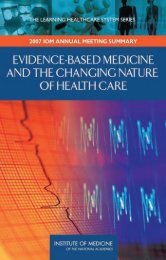Dictionary of Evidence-based Medicine.pdf
Dictionary of Evidence-based Medicine.pdf
Dictionary of Evidence-based Medicine.pdf
Create successful ePaper yourself
Turn your PDF publications into a flip-book with our unique Google optimized e-Paper software.
4 <strong>Dictionary</strong> <strong>of</strong> <strong>Evidence</strong>-<strong>based</strong> <strong>Medicine</strong><br />
Advisory Committee on Borderline Substances<br />
The Advisory Committee on Borderline Substances (ACBS) is a nonstatutory<br />
body <strong>of</strong> experts representing medical, pharmaceutical and dietetic<br />
opinion, first set up in 1971 to advise UK health ministers whether particular<br />
unlicensed substances, preparations or items (foods, dietary supplements<br />
and toiletries) should be treated as drugs which are prescribable at<br />
the expense <strong>of</strong> the National Health Service (paragraph 43 <strong>of</strong> Schedule 2 to<br />
the NHS (General Medical Services) Regulations 1992). The chairman and<br />
members <strong>of</strong> the Committee are appointed by the UK Secretary <strong>of</strong> State for<br />
Health and three other members are appointed by the Secretaries <strong>of</strong> State<br />
for Wales, Scotland and Northern Ireland.<br />
The Committee's terms <strong>of</strong> reference include ensuring that substances,<br />
preparations or items which have a therapeutic use in the treatment <strong>of</strong><br />
disease in the community can be provided as economically as possible<br />
under the NHS. Products which the Committee recommends may be<br />
regarded as drugs are published in the Drug Tariff and in the British<br />
'National Formulary. Although the list has no legal force, it is widely followed<br />
by both health authorities and prescribers in the community (GPs).<br />
The ACBS also advises the ministers on which products should not be<br />
prescribed at NHS expense either because they have not demonstrated a<br />
therapeutic use in treating disease in the community or because they do<br />
not meet a need as economically as possible. Such products are added to a<br />
negative list or blacklist (Schedule 10 to the NHS (General Medical Services)<br />
Regulations 1992) and GPs are legally barred from prescribing them at<br />
NHS expense though not on private prescriptions. The blacklist is given at<br />
part XVIIIA <strong>of</strong> the Drug Tariff. This blacklist also includes recommendations<br />
made by other committees, notably the Advisory Committee on NHS<br />
Drugs, and agreed by ministers.<br />
Age-specific rate (see Specific rate)<br />
Allocative efficiency (see under Efficiency)<br />
Allostasis<br />
Allostasis is the ability to achieve stability <strong>of</strong> body systems through<br />
change. Allostasis is essential to survival and is provided through the coordinated<br />
responses <strong>of</strong> the autonomic nervous system, the hypothalamicpituitary<br />
axis, the cardiovascular system, the metabolic system and the<br />
immune system (McEwen BS (1998) Protective and damaging effects <strong>of</strong>


